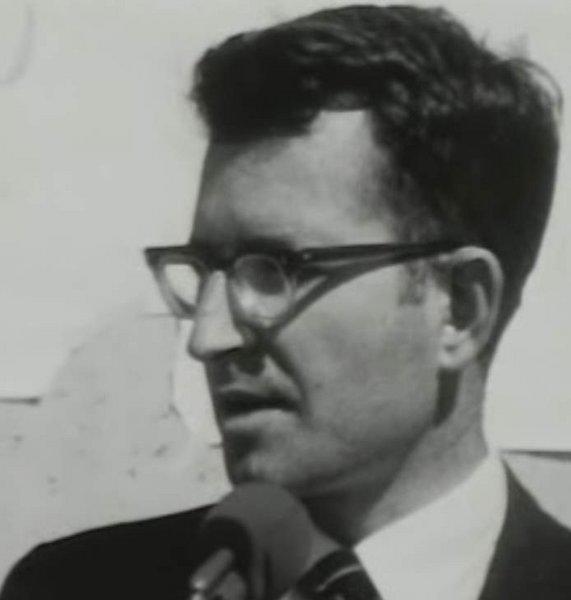Frosh week like whatever
August 25, 2008
6 Myths about McGill and Concordia
So here you are. You’ve left New Jersey or Bangalore behind, came to Montreal, McGill and Concordia and you are now ready to explore your new home and indulge in your new life of freedom and very loose drinking laws.
During your stay in Québec you will be expected to ingest quite enormous quantities of cheese, fries, gravy, beer and bullshit about your new home, all of which could quite understandably make you sick to your stomach if you are not careful.
Lucky for you, you’ve found the AngryFrenchGuide, the voice of reason and truth about Québec who will help you see through the fog of dinsinformation and closet francophobia that you might come accross in the streets of Montreal.
To start you off, here are a few myths about McGill and Concordia universities that you should be weary of:
1. McGill is Montreal’s only world-class university.
Although it has often claimed to have more international students than any other university in Canada and even though half of those “international” students live only a few hours down highway 15/87 in the United States, McGill only managed to attract 400 more students on a visa than l’Université de Montréal (the big yellow building that kind of looks like a mosque on top of Mount-Royal).
In 2006 McGill had 5549 sinternational students while UdM, with it’s affiliated engineering and business schools, Polytechnique and HEC, had 5130. Every single one of those had to take an airplane to get here. Who’s world-class now?
2. Québec needs McGill and Concordia to attract young upwardly mobile students from abroad.
What is this? 1998? You guys need to get with the program.
According to the British Council, the demand for a Western English language education by international students is falling fast, especially in Asia. In 2005 4 out of 5 UK universities recorded a drop in foreign students, as sharp as 50% in the case of students from China.
Most countries in the World have adapted to the reality that English is the global language. People are learning English at home, now. They don’t need to come to Canada and the West anymore. The British Council’s conclusion: “The recent decline in international students studying in the main English-speaking countries is unlikely to reverse.”
The latest numbers from McGill tell us that although international admissions were stable this year, admissions from China, Japan, Mexico and Latin America all were down.
3. English is still the global language. There will always be a demand for an English education.
India’s outsourcing business is in crisis because it doesn’t have enough multilingual staff. They need German, Chinese and Spanish-speaking staff to get new lucrative markets. It started outsourcing the English-language business to more inexpensive places like Viet Nam, Guatemala and the State of Georgia (not the country, the US state). English is no longer a high value skill. Anyone can speak English.
The word on the street is multilinguism. You can’t graduate from Montreal’s French-language universities without a high proficiency in English. You can very easily spend four years at Concordia without learning a word of French, which makes you unemployable in Québec, and just another unilingual English-speaker in that big multilingual world out there. Maybe you can get work at that Indian call-center in Atlanta?
4. I’ve heard about you AFG, you’re one of those bitter separatists trying to wipe English out of Montreal.
There are exactly 744 430 English-speaking people in Québec, not even 10% of the population. Nevertheless Québec has three English-language universities that receive 27% of the government higher education funding, including 33% of the research budgets.
The rest of Canada has exactly ONE French university and it doesn’t have enough money to have a medical school.
You’re welcome.
5. Yeah, but Montreal’s English universities help offset the “brain drain” in Québec.
Actually, if it wasn’t for Montreal’s Anglo universities, Québec would be in a “brain gain” situation. 70% of English-speaking students leave after earning a Ph.D. Every year, wilst Québec is in the middle of a doctor shortage crisis, more than 50% of doctors trained by McGill leave the province.
Québec’s French universities can train more fluently English-speaking doctors and engineers than McGill and Concordia at a fraction of the cost. McGill and Concordia are just not good investments.
6. Fuck you AFG! English Montreal built McGill and Concordia and you separatists don’t have any business telling us who and what we should teach!
Actually, McGill and Concordia have received between a quarter and a third of all the higher education budgets of Québec for the last 40 years. They were built by the Québec people and belong to the Québec people. If the people of Québec decide they need Concordia to train people to work in Tagalog, that’s what Concordia’s should do.
So there you have it. French-speaking North Americans (3% of the continents population) are subsidizing the education of English-speaking North Americans (90% of the population). Pay attention in your PoliSci class when the teacher will describe neo-colonial systems. You just might hear things that sound like this post.
But it’s cool, don’t worry about it. You’ve got time. Take those four years, learn some French, explore the east, make some friends and join the good fight.
And remember, don’t go back home without having that poutine. It helps keep everything down.
Libellés : colonialisme, mcgill, québec

 Moi
Moi 
 La Patrie
La Patrie  La Santé
La Santé










